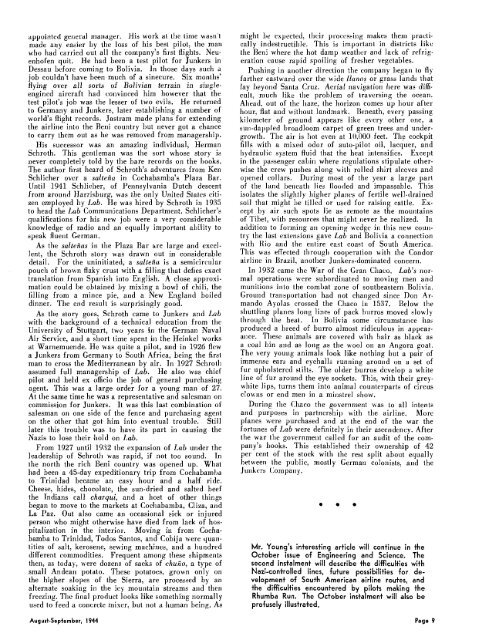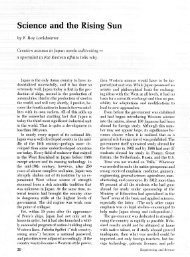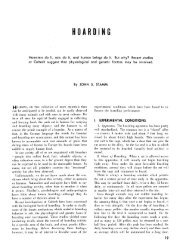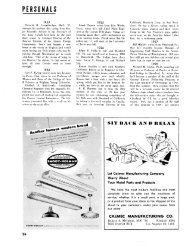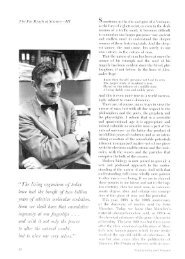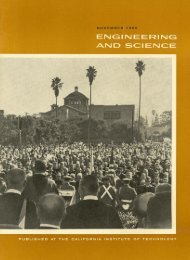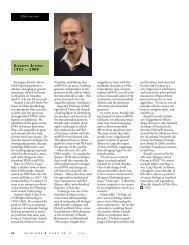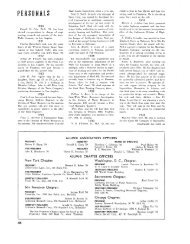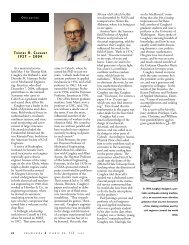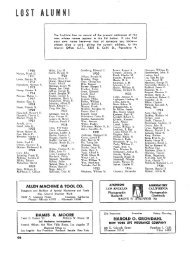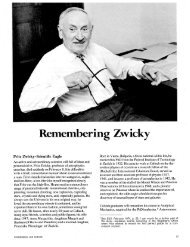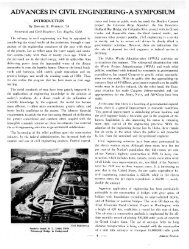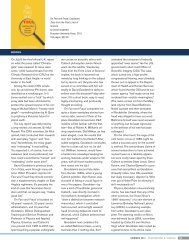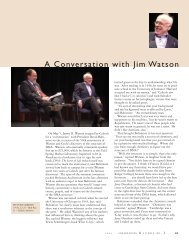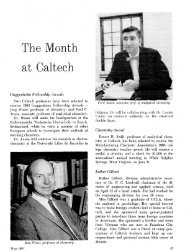Rhumba Run—Part 1 - Engineering & Science
Rhumba Run—Part 1 - Engineering & Science
Rhumba Run—Part 1 - Engineering & Science
You also want an ePaper? Increase the reach of your titles
YUMPU automatically turns print PDFs into web optimized ePapers that Google loves.
dppoii'led general manager. His work at the time wasn't<br />
made any easier by the loss of his best pilot, the man<br />
who had carried out all the company's first flights. Neu-<br />
enhofen quit. He had been a test pilot for Junkers in<br />
Dessau before coming to Bolivia. In those days such d<br />
job couldn't have been much of a sinecure. Six months'<br />
flying over all sorts of Bolivian terrain in si~~gje-<br />
engincd aircraft had convinced him however that the<br />
test pilot's job was the lesser of two evils. He returned<br />
to Germany and Junkers, later establishing a number of<br />
world's flight records. Jastram made plans for extending<br />
the airline into the Beni country but never got a chance<br />
to carry them out as he was removed from managership. -<br />
His successor was an amazing individual, Herman<br />
Schroth. This gentleman was the sort whose story is<br />
never completely told by the bare records on the hooks.<br />
The author first heard of Schroth's adventures from Ken<br />
Schlicher over a salteiia in Cochabamba's Plaza Bar.<br />
Until 1941 Schlicher, of Pennsylvania Dutch descent<br />
from around Harrisburg, was ihe only United States citizen<br />
employed by Lab. He was hired by Schroth in 1935<br />
to head the Lab Communications Department. Schlicher's<br />
qualifications for his new job were a very considerable<br />
knowledge of radio and an equally important ability to<br />
speak fluent German.<br />
As the sultefias in the Plaza Bar are large and excellent,<br />
the Schroth story was drawn out in considerable<br />
detail. For the uninitiated, a saltefia is a semicircular<br />
pouch of hrown flaky crust with a filling that defies exact<br />
translation from Spanish into English. A close approximation<br />
could be obtained by mixing a bowl of chili, the<br />
filling from a mince pie, and a New England boiled<br />
dinner. The end result is surprisingly good.<br />
As the story goes, Schroth came to Junkers and Lab<br />
with the background of a 'technical education from the<br />
University of Stuttgart, two years in the German Naval<br />
Air Service, and a short time spent in the Heinkel works<br />
at Warnemuende. He was quite a pilot, and in 1926 flew<br />
a Junkers from Germany to South Africa, being the first<br />
man to cross the Mediterranean by air. In 1927 Schroth<br />
assumed full managership of Lab. He also was chief<br />
pilot and held ex officio the job of genera1 purchasing<br />
agent. This was a large order for a young man of 27.<br />
At the same time he was a representative and salesman on<br />
commission for Junkers. It was this last combination of<br />
salesman on one side of the fence and purchasing agent<br />
on the other that got him into eventual trouble. Still<br />
later this trouble was to have its part in causing the<br />
Nazis to lose their hold on Lab.<br />
From 1927 until 1932 the expansion of Lab under the<br />
leadership of Schrotli was rapid, if not too sound. In<br />
the north the rich Beni country was opened up. What<br />
had been a 45-day expeditionary trip from Cocliabamba<br />
to Trinidad became an easy hour and a half ride.<br />
Cheese, hides, chocolate, the sun-dried and salted beef<br />
the Indians call charqui, and a host of other things<br />
began to move to the markets at Cochabamba, Cliza, and<br />
La Paz. Out also came an occasional sick or injured<br />
person who might otherwise have died from lack of hospitalization<br />
in the interior. Moving in from Cochabamba<br />
to Trinidad, Todos Santos, and Cobija were quantities<br />
of salt, kerosene, sewing machines, and a hundred<br />
different commodities. Frequent among these shipments<br />
then. as todai. ivere dozens of sacks of chufio. a tvne of<br />
, , . 4 .<br />
small Andean potato. These potatoes, grown only on<br />
the higher slopes of the Sierra, are processed by an<br />
alternate soaking in the icy mountain streams and then<br />
freezing. The final product looks like something normally<br />
used to feed a concrete mixer, but not a liuman being. As<br />
might be expected, their processing make5 them practically<br />
indestructible. This is important in districts like<br />
the Beni where the hot damp weather and lack of refrigeration<br />
cause rapid spoiling of fresher vegetables.<br />
Pushing in another direction the company began to fly<br />
farther eastward over the wide llanos or grate lands that<br />
lay fieyond Santa Cruz. Aerial navigation here was ditficult.<br />
much like the problem of traversing the ocean.<br />
Ahead. out of the haze. the horizon comes up hour after<br />
hour. flat and without landmark. Heneath. every passing<br />
kilometer of around appears like ekcry other one, a<br />
i-un-dappled broadloom carpet of green trees and undergrowth.<br />
The air is hot eien at 10.000 feet. The cockpit<br />
fills with a mixed odor of auto-pilot oil, lacquer, and<br />
Ii~draulir system fluid that the heat intensifies. Except<br />
in the pa>senger cabin where regulations stipulate otherwise<br />
the crew pushes along with rolled shirt sleeves and<br />
opened collars. During most of the year a large part<br />
of the land beneath lies flooded and impassable. This<br />
isolates the slightly higher planes of fertile well-drained<br />
soil thai might he tilled or used for raising cattle. Except<br />
by air such spots lie as remote as the mountains<br />
of Tibet. nith resources that might never be realized. In<br />
addition to forming an opening wcdgc in this new country<br />
the lafet extensions gave Lab and Bolhia a connection<br />
with Rio and the entire east coa


